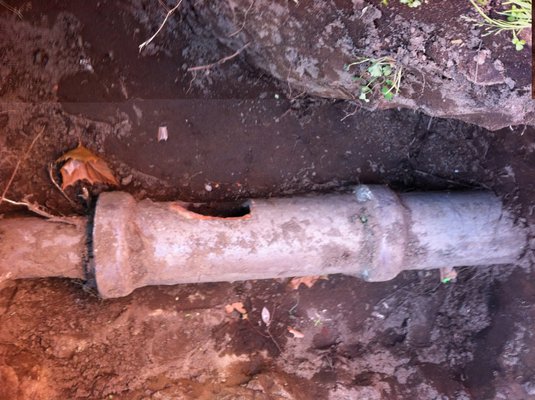5 Things Home Inspectors Won’t Tell You
Introduction
Being informed is always the best course of action when dealing with an expensive transaction, whether you are a real estate agent or a home buyer. Agents need to educate their clients and reduce their own liability. Home buyers must be fully educated before spending a lot of money. Over the past 20 years of doing home inspections, we have found that setting expectations properly is always a best practice.
Home inspectors follow a set of standards known as Standards of Practice. Depending on which organization they belong to, or which state has issued their license, they have standards to which they should adhere. Overall, these standards are similar. You can ask your home inspector which standards they follow, and look them up. Their scope of work should align with any inspection agreement they use.

One important fact to remember is that home inspectors are generalists. They have to know and understand all of the systems in a house, but they are not necessarily experts in any particular trade. By hiring a generalist, an agent saves a lot of time and the client saves a lot of money versus hiring a bunch of experts in each individual trade. This would be difficult to coordinate. It would also be expensive. Having said that, there are many home inspectors who are specialists in a trade or two. But most home inspectors are not contractors.
Home inspectors assess thousands of items during an inspection. Since they are generally limited to a two or three-hour time frame, the assessment has to be limited in scope. Just like a family doctor, home inspectors are trained to identify anomalies in a system, but they are likely not equipped to fully diagnose the issue or provide a complete remedy. Instead, Instead, they make a recommendation for the properly licensed professional to thoroughly asses the situation and provide a quotation.
Hero Complex
A common opinion of home inspectors that many real estate agents have is that home inspectors are “deal killers” or “alarmists”. While it is true that some (usually newer) home inspectors take on a “hero complex”, most are very fair-minded. A hero complex compels the home inspector to make a big deal out of what they found. Some inspectors feel they are protecting the consumer from a money pit. Of course, this is for the client to decide not the inspector.
This issue is typically limited to newer inspectors who get excited about discovering defects. It is unknown if they are simply trying to justify their pay or if they truly believe they are protecting clients. One way to avoid this scenario is to hire experienced home inspectors. It is also important for agents to set the expectation regarding home inspection findings with the client, and let them know that some additional charges may be forthcoming depending on the tradesperson who needs to be hired for further evaluation.
Another key indicator is to look at online reviews of the home inspector or the home inspection company. If they have very few reviews or low ratings, it may indicate that they are inexperienced or are providing poor interactions with clients.
Limitations and Exclusions
Be sure to read the home inspector’s Inspection Agreement which must be sent to you prior to the inspection taking place. Carefully read the exclusions that are in the agreement. Most are defined by the Standards of Practice, but some may be added as regional conditions dictate. For example, a home inspector located in California and unfamiliar with basements where basements are rare, may exclude basements from his inspections. Some Standards exclude the testing of appliances. Appliances can be expensive to repair or replace, and likely the buyers will want them tested. It can be a big surprise if the client moves in to find that appliances were not tested, and not functioning properly.
Don’t Expect Answers to The Following Questions
The following are five things that just about every home inspector in the country will refrain from telling the clients or agents. Sometimes these things could lead to liability for the inspector, and others are simply out of alignment with the home inspector’s function. These are things your home inspector will not tell you.
- Q: Is this home worth the purchase price?
A home inspector is not qualified to answer this question. No matter the level of repairs needed, the home inspector should never comment on whether a house is worth what the client is willing to pay. This question should ALWAYS be directed to the agent.
- Q: How much will that cost to repair?
Home inspectors who are not licensed in the trade in question should never comment or guess as to what a repair will cost. This creates a big liability for a home inspector. Even if the inspector thinks a repair can be done for a certain amount, and the actual cost is much greater, there could be a demand made for the difference. Other than off-the-shelf parts, a home inspector will not give you a quote for repairs. This is why many inspectors now work with third-party estimators to provide quotes.
We work with our technology partner, TheQwikFix to provide fast, accurate estimates for repairs of the items we find during an inspection. This saves buyers and agents a lot of time right after the inspection vs. scheduling various tradespeople to visit the home, create estimates, and send those out. Read more about TheQwikFix.
- Q: Would you buy this house?
You might be surprised at how often a home inspector is asked some form of this question. People also ask “Would you let your mother buy this house?”
Every house is right for someone. It just depends upon the capacity of the buyer to make repairs or put up with the inconvenience of having the repairs performed. One thing is for sure, other than a brand new house home inspectors will not answer this question as there is too much to consider.
- Q: Do you think the seller will pay to repair that?
This is way outside of the home inspector’s scope of work and gets into the deal itself. This is the realm of the agents, buyers, and sellers to discuss, not the inspector.
- Q: Is there a crack in the slab?
A crack in a slab can be difficult to determine whn floor covering is present. A home inbspector cannot see through flooring, and cannot lift carpeting. Unless there are other indications of a crack, such as cracked floor tiles, a discernible variation in the floor that can be felt, Door frames that are out of square causing doors to rub on the jamb, or cracking present in the drywall, don’t expect a home inspector to tell you for certain whether there is or isn’t a crack in the slab.
Keep in mind that the slab is simply a material that separates the interior of the home from the dirt below. Typically the slab is not structural, and even if the slab is cracked, it has no bearing on the integrity of the structure. If a slab is cracked and the two opposite sides of the crack are deflected, this can indicate a problem with the soil beneath the slab. If you feel variations in the surface, it is a good idea to ask sellers for permission to have the carpet or flooring moved, and the slab evaluated by a foundation contractor or soils engineer.
Here is some more good information about concrete, and where contractors fail: did my slab crack?
BONUS Question
- Q: Is there mold/asbestos/lead in the house?
While the inspector can make an educated guess about the presence of these items, the only way to confirm the presence or absence is through proper testing. Many home inspectors are certified to perform mold testing. This involves taking swabs or air samples and sending those samples to a lab for evaluation. Some home inspectors are also qualified/licensed to perform WDO or termite inspections. Far fewer are licensed or qualified to sample asbestos or lead. Without the proper certification, a home inspector will not confirm the presence of these contaminants in a house.
BONUS Question #2
- Q: Is the hillside behind this house stable?
Only a soils engineer can make an assessment as to the stability of a hillside, hydrostatic issues, and the possible effects on the house.
There are a lot of things that are not part of a home inspection. Whether you are a buyer or a real estate agent, please take the time to read the standards of practice, and the inspector’s inspection agreement before you have the inspection. There may be additional inspections that you want, and it’s better to know that as early as possible.
Get Ahead with the Right Questions
Save yourself the agony of afterthoughts and regrets. Know what questions to ask and what to expect from an inspection. With The Real Estate Inspection Company, you’re not just buying peace of mind; you’re investing in knowledge.
Ready for a Hassle-Free Home Inspection?
Tired of home inspection pitfalls? For an inspection that answers the right questions, call The Real Estate Inspection Company at 800-232-5180 or schedule online at www.sdinspect.com.



